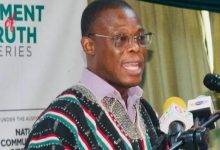Calls by women to be given equal representation as men, especially in the political space, keep growing.
Therefore, it is not surprising that four women-centred civil society organisations (CSOs) and another organisation are calling on President Nana Addo Dankwa Akufo-Addo to appoint a number of women who will form at least 60 per cent of the 30 per cent membership of the Metropolitan, Municipal and District Assemblies (MMDs) who are classified as government appointees.
The four, the Network for Women’s Rights in Ghana (NETRIGHT), the Alliance for Women in Media Africa (AWMA), the Affirmative Action Bill Coalition, and the Women’s Manifesto Coalition (WMC); as well as the National Association of Local Authorities of Ghana (NALAG) maintain that there is an unaccepted under-representation of women in decision-making positions in Ghana, which remains a matter of grave concern, especially at the local level.
The concerns of the organisations cannot be discounted because women are very important people in the society due to the obvious roles they play in the survival and continuity of society.
It is not in dispute either that women have moderating traits that help to ensure peace in society.
Besides, women are mostly known to be less corrupt than men and so when they are in charge of situations, fairness rules to a large extent and corruption is not too much of a headache.
We know women face certain peculiar challenges, but some of the arguments advanced for their equal representation in decision-making in the country must be critically analysed.
In the first place, what is the basis for the request for 60 per cent appointments?
The women are their own witnesses when they agree that some strides have been made to address the level of disparity in decision making, particularly in the governance space.
A question then arises with regard to the claim that there seems not to be comprehensive efforts in prioritising women’s equal access to leadership and positions of decision making.
We know women are pushing for Affirmative Action in many areas of the society, but they need to put the brakes on certain areas where there are no instances of discrimination such as the political space in the country, including the local governance system.
There is no political party or group in the country that has openly stood up against women’s participation in the country’s political administration and so restricting women in one way or another; neither is there a law in the country doing so.
The truth rather is that most women refuse to contest for elected positions and appointed positions are usually offered on merit, based on certain qualifications.
For instance, government appointees to the district assemblies should be persons of professional and other backgrounds needed by the assemblies, but cannot be guaranteed or found in the elected members because any adult citizen of sound mind can stand to be elected.
This means women can be appointed if they qualify.
We are in an era when merit is the order of the day for positions in the governance space and elsewhere, meaning positions cannot be earned on a silver platter.
Thus, what women or women’s affairs advocates should do is to push women to prepare for such positions.
It is when they are prepared but are discriminated against that there will be the cause to roar against discrimination and marginalisation of women in decision-making in the country.



